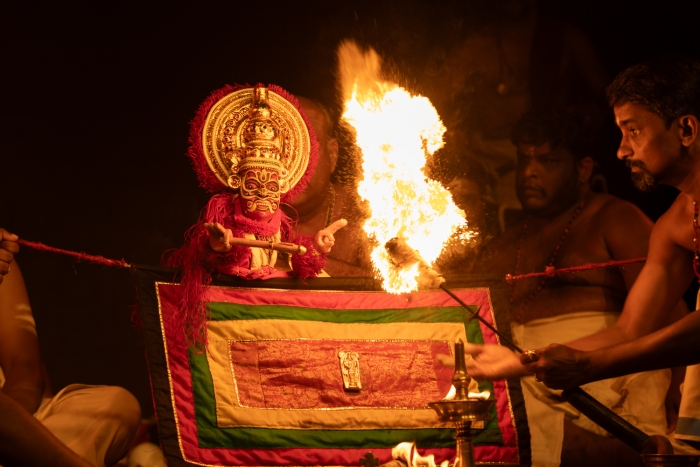Pulling back an endangered art form from the abyss of oblivion is the task that takes a lifetime. But, ensuring that the resuscitated art form does not slip back onto the brink of that abyss again, is the responsibility of another lifetime, another generation. When 'Pavakathakali,' the glove puppet tradition indigenous to Kerala, is being handed over to the next generation of artistes, it is the beautiful continuation of that uninterrupted flow of artistic endeavour taking its course from one generation to another.
The resuscitation of Pavakathakali had happened about forty years ago, under the auspices of Natanakairali, the research and performing centre for traditional and folk art forms of Kerala that was founded by G. Venu, scholar, performer and trainer. Spurred on by none other than Kamaladevi Chattopaddhyay, the then Chairperson of Sangeet Natak Akademi, New Delhi, and the prominent patron of India's handicrafts, handlooms and traditional and folk art forms, G. Venu had taken upon the responsibility of piecing together the almost-lost heritage of Kerala's glove puppetry tradition and breathing a new life into it. Supported with a meagre financial aid sourced through Kamaladevi, Venu had managed to create a troupe of Pavakathakali at Natanakairali with K.C. Ramakrishnan and K.V. Ramakrishnan, two youngsters from the village of Paruthippally in Palakkad district, which was the home of the art form in bygone days. Chamu Pandaram, the last of the Pavakathakali performer hailing from the Andi Pandaram community, the traditional community who were the guardians of the art form, had passed away a few years ago before that. Armed with a couple of puppets made by Thottassery Narayanan Namboothiri at Vijnana Kalavedhi, Aranmula, where the initial part of the revival project was conducted, and supported by his own training and knowledge of Kathakali, Venu managed to design a couple of Pavakathakali performances.
Please provide your name / email id along with your comment. Anonymous and derogatory comments will be removed.

No comments:
Post a Comment